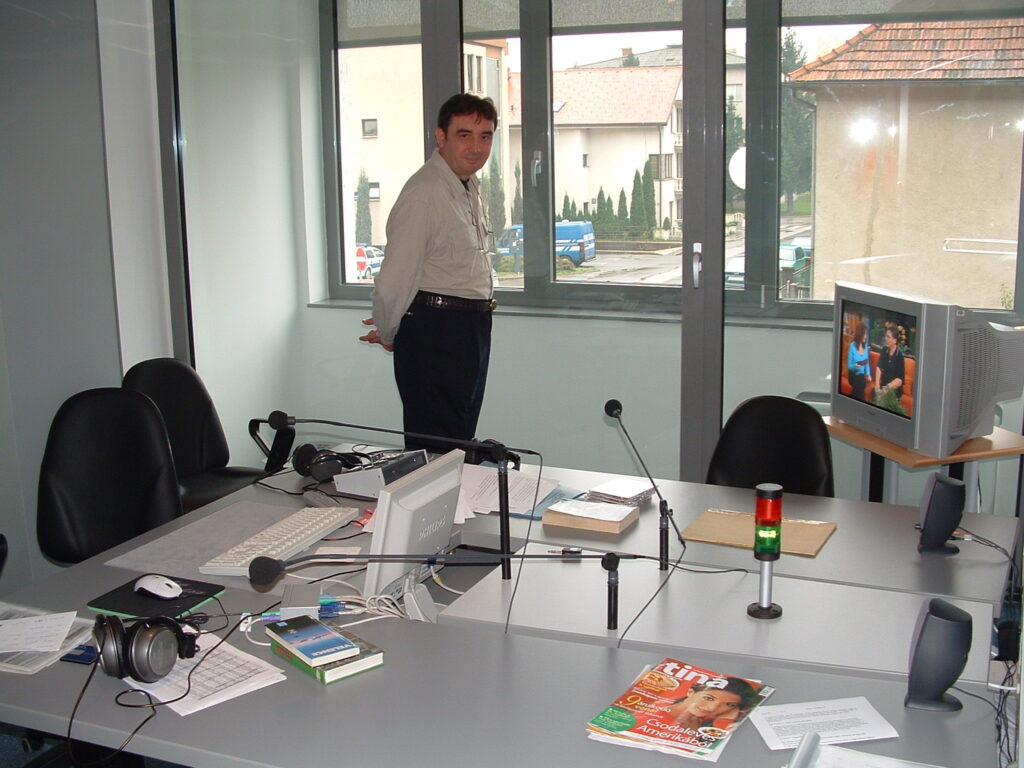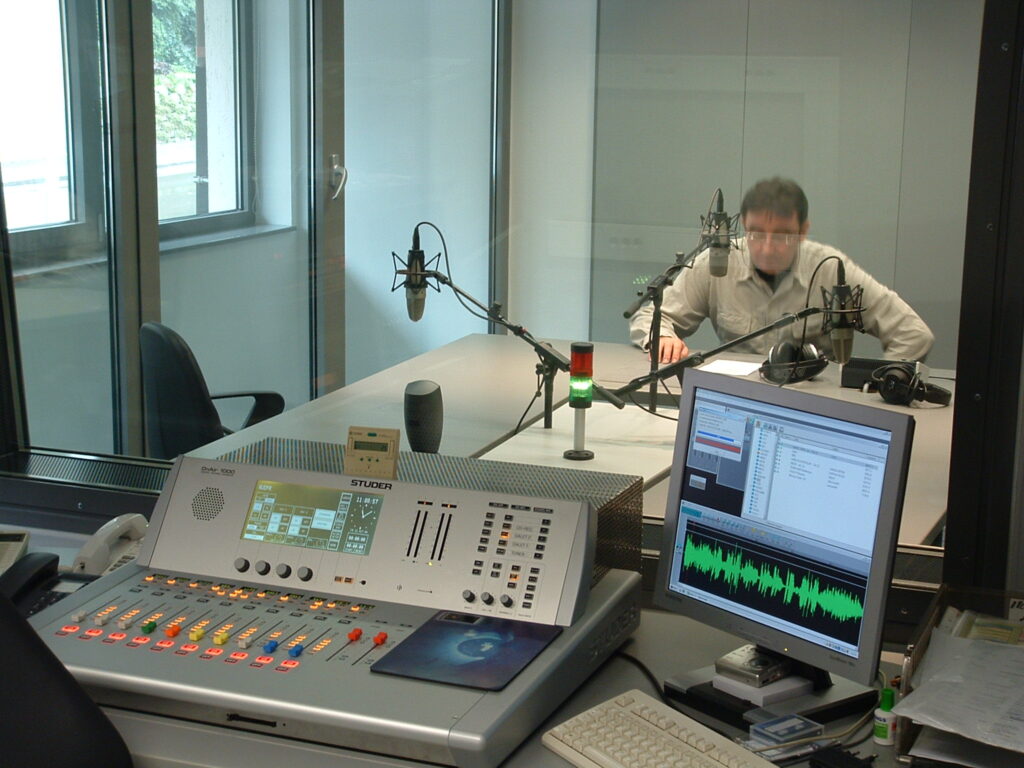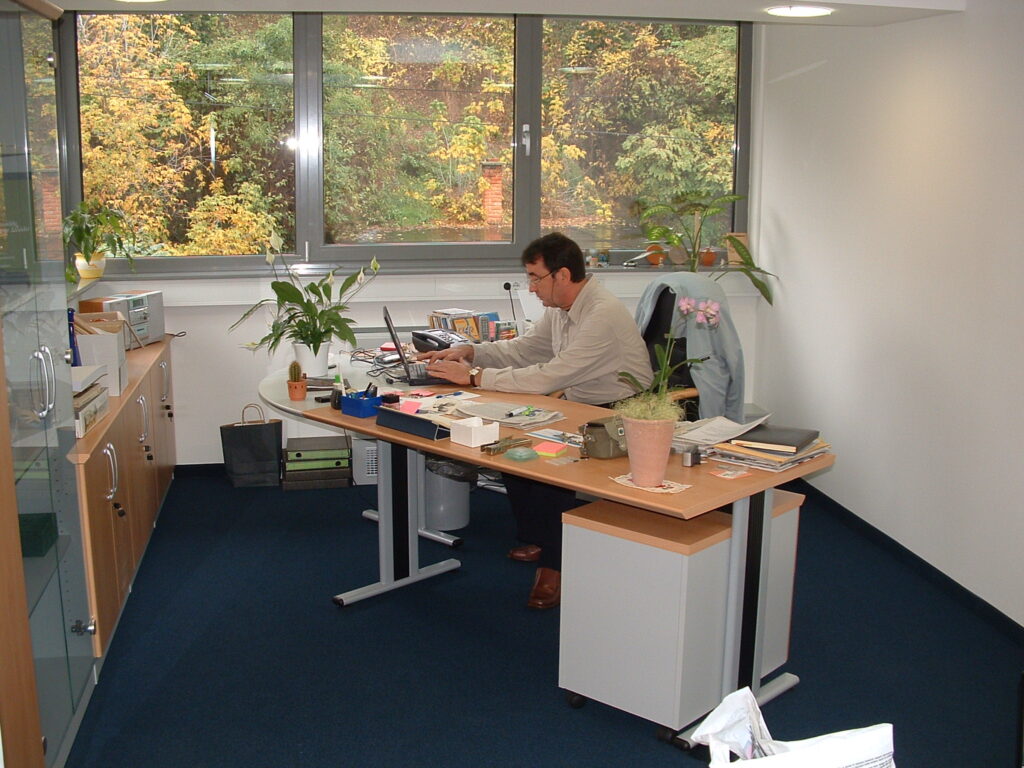
My name is Dezső Öreg, I am a retired journalist of the Radio-Television of Vojvodina. I have been interested in literature and writing since I was a child, so it was no surprise that after finishing primary school and grammar school I continued my studies at the Department of Hungarian Language and Literature of the University of Novi Sad. I spent my childhood in my hometown Bačko Petrovo Selo, but moved to Novi Sad in order to continue my higher education. At that time Novi Sad was considered an economic and intellectual center, what’s more a liberal and unique place in Yugoslavia. I was fortunate to be a member of the 1955 generation, that was intellectually very strong, at a time liberalism was considered a virtue and not a curse. This has contributed heavily to the development of my world view. Liberalism was not seen as a political doctrine, but a basic right to freedom of opinion. This meaning has remained the same for me to this day. In debates back then arguments still mattered, not the noise, the lies, and the fictional enemies.
In such a milieu, it is no wonder that already in my final year of study I was drawn to a group gathered around the Új Symposion magazine. However, the fast pace of journalism, the spotlight and the fame directed me more towards television, seduced me, if you will. So I started in the editorial office for children’s programmes and later moved to literature. In the end, politics were unavoidable, and political journalism became my professional destiny. I did not know at that time what awaited us and what major changes the nineties would bring. Not only in the South Slavic regions, but all over the world. I lived the relatively comfortable life of a minority journalist. A life that allowed me to become a foreign policy journalist, which was regarded as a very sophisticated position back then. I could not have guessed at that time the differences there would be between us minority and majority journalists. In the eighties there was one founder and one party that controlled the editorial policy, and everyone fell in line in order to get a piece of the pie. And there was enough pie to go around, even for those like me, who were not members of the party. It was during these times when I started working at the Radio, amid great social change. Us foreign policy journalists – at least some of us – were aware of the dangers, but Hungarian minority journalists did not expect armed conflicts here. As it turned out, we assessed the situation poorly, very poorly. At the beginning of the Yugoslav Wars, Hungarian intellectuals from Vojvodina, including some journalists were in the opposition. By then private newspapers had formed, national incitement was in full swing and we just looked on wide-eyed. Others packed up in haste, as they received conscriptions into the army. They could not fathom why they should die in a war, waged by people who considered each other good neighbours and friends up until that point. At that moment, it turned out minority journalism was small. Thin, skinny, and poor. It can’t finance three to four newspapers. Either you write as you are told or you are out. Of course, there were also advantages to minority journalism, we were inconspicuous. With that we were able to smuggle in the news from the Serbian opposition press at that time to the Public Broadcasting Service and publish it in the Hungarian media. Our editorials were harsher. Back then we still had editorials published on public service media. Not many dared to do this, but there were a select few. Apart from everyday fears, most were also tormented by poverty. In any case, I would argue that in the public service media we published more information than our colleagues from the majority.
And then October 5, 2000 had arrived. The day that many still call the regime change. They believe and preach even today, that the time of democracy and the rule of law has come. Us foreign policy journalists already had an idea of what that meant, but most journalist were and still remain more or less ignorant in this regard. During this period, I held the position of Editor-in-Chief twice, for a total of 10 years. Over time, I had to admit that most did not demand real, free, and objective journalism. Nor the journalists themselves, nor the readers. Not even today. In 2021 there is a great divide between Hungarian journalists in Serbia. The leading Hungarian party is a coalition partner in the current Serbian government. It is no surprise they have expectations when it comes to managing editorial policy. To put it simply, there is political pressure on the press. Including the Hungarian press as well, of course. From funds received from the motherland, Hungary, the local Hungarian political elite created a new Subotica-based Radio and Television and took the only Hungarian daily newspaper from Novi Sad. Now edited from four different places in order to keep a watchful eye on it. A journalist’s task is to ask politicians and the authorities unpleasant questions for the sake of informing their readers, listeners, and viewers. However, this no longer seems to be the goal, with the shameful justification that there is no independent journalism anywhere in the world. In a nutshell, this is what has happened in journalism over the past 40 years, including minority journalism, in Yugoslavia, in Serbia, in Vojvodina. We have made our way nicely over from a communist dictatorship to a populist autocracy.

Ime mi je Öreg Dezső, penzionisani sam novinar javnog servisa Vojvodine. Od malih nogu me je privlačila književnost kao i pisanje. Nije ni čudo da sam nakon završene osnovne škole i gimnazije svoje obrazovanje nastavio na Katedri za Mađarski jezik i književnost pri Univerzitetu u Novom Sadu. Kao dete sam živeo u rodnom selu u Bačko Petrovo Selo, ali obrazovanje sam već stekao u Novom Sadu. U to vreme je ovaj grad važio za privredni i duhovni centar, šta više za liberalno i jedinstveno mesto u Jugoslaviji. Bio sam u tako u srećnoj prilici, da budem član generacije iz 1955 godine koja je bila duhovno veoma jaka. Naravno da je i to doprinelo razvoju mog pogleda na svet, u to doba je liberalizam važio za vrlinu a ne za psovku. Nije bio politička doktrina, nego osnovno pravo građanina na slobodu mišljenja. Za mene je i dan danas zadržao isto značenje. U raspravama su tada još uvek bili važni argumenti a ne galama, laž i izmišljanje lažnog protivnika.
U takvom miljeu verovatno nije čudo, da sam već na završnoj godini studija ostvario kopču sa novom generacijom, okupljenu oko časopisa Uj Symposion, ali brzi tempo novinarstva, svetla reflektora i činjenica prepoznatljivosti su me privukli i usmerili ka televiziji. Ako vam se više sviđa reč, dovodili u iskušenje. Tako sam počeo u redakciji programa za decu pa nastavio u literarnoj. Na kraju, nezaobilazna politika, političko novinarstvo je postala moja stručna sudbina. Tada naravno nisam znao kakva nas vremena očekuju, kolike promene donose devedesete. Ne samo u južnoslovenskim krajevima, nego širom sveta. Živeo sam relativno udoban život jednog manjinskog novinara. Koji život mi je omogućio da u struci dospem u tada još elegantno važeće drušvo spoljnopolitičkih novinara. Tada još nisam bio svestan kakva će biti razlika između nas manjinskih i većinskih novinara. Tada, osamdesetih godina, bio jedan osnivač, jedna partija je vodila uređivačku politiku, svako je koračao skladno, da bi bio siguran u nagradu. I sledila je nagrada, čak i onda, kada je čovek izbegao članstvo u partiji, kao na primer ja. U ta vremena sam prešao u Radio. Nasred velikih društvenih promena. Mi na spoljnoj politici – barem neki od nas – bili smo svesni opasnosti, ali na oružane sukobe društvo ovdašnjih mađarskih manjinskih novinara nije računalo. Kako se ispostavilo, loše, veoma loše smo procenili situaciju. Na početku sukoba između južnih slovena, vojvođanska Mađarska inteligencija – neki novinari se mogu svrstati među njih – žnači ovdašnja Mađarska inteligencija je bila opoziciona. Tada su već krenule privatne novine. Uveliko je trajalo nacionalno podstrekavanje, a mi smo samo gledali iznenađeno. Drugi su se ubrzano pakovali, jer su dobijali pozive za vojsku. Nisu razumeli zašto bi umrli u nekom ratu, koji vode ljudi, koji su do sada važili za dobre komšije, drugove, poznanike.I tada se ispostavilo, da je manjinsko novinarstvo malo. Tanko, mršavo, siromašno. Ne može da finansira dve-tri novine. Ili ćeš pisati kako ti se kaže, ili put pod noge. Naravno imali smo i prednosti, što smo bili mali, nismo zapadali u oko. I mi, na Javnom servisu, mogli smo da švercujemo vesti iz tadašnje Srpske opozicione štampe. Komentari su nam bili znatno oštriji. Tada je još bilo komentara na javnom servisu. Radili smo to, barem ko je smeo. Ne puno nas. Većinu, pored svakodnevnog straha je mučila i nemaština. U svakom slučaju tvrdim, da na nivou javnog servisa više informacija smo objavljivali, nego ostale kolege.
I stigao 5. Oktobar 2000. Godine. Kojeg mnogi i dan danas nazivaju promenom sistema. I veruju, govore i danas, da je došlo vreme demokratije i pravne države. O tome smo mi radeći na spoljno političkoj rubrici već imali saznanja i stav. Ali većina novinara je na tom planu bila i ostala, manje-više, bez nekog iskustva. U tom periodu sam dva puta bio glavni urednik sve ukupno 10 godina. Ali sam morao da uvidim, da za pravo, slobodno objektivno novinarstvo većina nije zainteresovana. Ni oni koji pišu novine, ni oni koji čitaju. Ni dan danas. Inače u 2021.godini velike su suprotnosti između Mađarskih novinara u Srbiji. Ovdašnja vodeća Mađarska stranka je koalicioni partner vlasti. Nije čudno, da imaju zahteve prema uređivačkoj politici, da hoćeda učestvuju u stvaranju istog. Narodski, vrši se politički pritisak na na štampu. I na mađarsku, naravno. Iz para iz matice, ovdašnja mađarska politika je stvorila jedan novi Radio i TV studio u Subotici. Jedini dnevni list na mađarskom je odnet iz Novog Sada. Uređuju ga sa 4 mesta. Da bude pred budnim okom. Novinarima više nije cilj da od političara pitaju i nezgodna pitanja u interesu čitalaca, slušalaca i gledalaca. A obrazloženje, da na svetu nigde ne postoji nezavisno novinarstvo sramno je pravdanje. U najkraćim crtama toliko se dogodilo za zadnjih 40 godina na planu manjinskog novinarstva u Jugoslaviji, Srbiji i Vojvodini. Lepo smo stigli iz komunističke diktature do populističke autokratije.

Öreg Dezső vagyok, az Újvidéki RTV nyugalmazott újságírója. Kicsi korom óta vomzódtam az irodalomhoz, az íráshoz, így nem csoda, hogy az álltalános iskola és a gimnázium befejezése után, tanulmányaimat au Újvidéki Egyetem Magyar Tanszékén folytattam. Egyébként kora gyermekkoromat szülőfalumban, Péterrévén töltöttem, tanulmányimat azonban már Újvidéken végeztem. Abban az ídőben ez a város gazdasági és szellemi központnak, sőt szabadelvűnek és egyedinek számított Jugoszláviában. Abban a szerencsés helyzetben voltam, hogy nemzedékem, az 1955-ös, szellemileg erős generáció volt és persze az is nagyot lendített világnézetem kialakulásában, hogy a szabadelvűség akkor még erénynek számított, nem pedig szitokszónak. Nem politikai doktrínát, hanem a polgár szabad gondolkodásra való elemi jogát jelentette. Számomra ma is ezt jelenti. A vitákban akkor még az érvek számítottak, nem pedig a hangerő, a hazudozás meg az ellenség fabrikálás.
Ilyen miliőben nem csoda, hogy már végzős egyetemista koromban az Új Symposion akkor alakuló új gárdájához vonzódtam, de az újságírás gyorsabb tempója, a reflektorfény, az ismertség inkább a televízió felé irányított. Ha jobban tetszik, csábított. Így kezdtem a gyermek-szerkesztőségben majd folytattam az irodalmiban. Végül a megkerülhetetlen politika, politikai újságírás, lett szakmai sorsom. Akkor persze még nem tudtam, hogy milyen idők elé nézünk, hogy mekkora változásokat hoznak a kilencvenes évek. Nem csak a délszláv térségben, hanem világszerte. Éltem a kisebbségi újságíró aránylag kényelmes sorsát. Amely sors megendedte, hogy az újságírásban, az akkor még igen elegánsnak számító külpolitikai rovatra kerüljek. Akkor még nem tudtam, hogy mi is lesz majd a különbség közöttünk, kisebbségiek meg a többségiek között. Akkor, a nyolcvanas években, egy alapító volt, egy párt írányította a szerkesztéspolitikát, egyszerre lépett mindenki, hogy mindenkinek jusson rétes estére. És jutott is, még akkor is, ha nem volt párttag, mint én. Egyébként ekkor kerültem a Rádióba. Jöttek a változások. Mi külpolitikusok – legalább is közülönk sokan – láttuk, hogy nagy a veszély, de fegyveres összetűzésekre az itteni magyar kisebbségi újságiró társadalom nem számított. Mint kiderült rosszul, végtelenül rosszul mértük fel a helyzetet. A délszláv háborúk kezdetén a vajdasági magyar értelmiségiek, hellyel közzel egyes újságírók is közéjük sorolhatók, tehát a magyar értemiség ellenzéki volt. Akkor már beindultak a magánújságok, nagyban folyt a nemzeti úszítás, mi pedig csak kapkodtuk a fejünket. Mások lóhalálban csomagoltak, mert katonának hívták őket. Nem értették, miért kellene meghalniuk egy olyan háborúban, amelyet, teljesen értelmetlenül az eddig jó szomszédnak, barátnak, ismerősnek számító emberek vivnak egymással. És itt kiütközött, hogy a kisebbségi újságírás kicsi. Vékony, sovány, szegény. Nem bír 3-4 újságot fenntartani. Vagy úgy írsz, ahogy mondják, vagy fel is út,le is út. Persze voltak előnyei a kisebbségi újságírásnak: nem voltunk szem előtt. És mi közszolgálatiak becsempészhettük az akkori ellenzéki szerbiai sajtó híreit. Kommentárjaink keményebbek voltak. Akkor még voltak kommentárok a közszolgálati sajtóban. Tette is ezt, aki merte. Nem sokan voltunk. A többséget a mindennapi félelem mellett a nincstelenség is kínozta. Minden esetre, állítom, hogy a közszolgálati színten többet megírtunk, mit a többségi kollégák.
És akkor megérkezett 2000 október 5. Amit még mindig sokan rendszerváltásnak mondanak. És azt hiszik, hirdetik, hogy eljött a demokrácia meg a jogállam ideje. Amelyekről, nekünk külpolitikusoknak már volt elképzelésünk, de a többség e tekintetben tapasztalatlan volt. Maradt is, jószerivel. Ebben a periódusban kétszer is betöltöttem a főszerkesztői posztot, összesen 10 évig. De be kellett látnom, hogy igazi, szabad, objektív újságírást a többség nem igényelt. Sem az újságot írók, sem az olvasók közül. Ma sem. 2021-ben mély ellentétek feszünnek a szerbiai magyar újságírók között. Az itteni vezető magyar politikum a mostani szerbiai hatalmi koalíció része. Nem meglepő, hogy elvárásai vannak a szerkesztéspolitika irányításában. Magyarán politikai nyomás nehezedik a sajtóra. A magyarra is, természetesen. Anyaországi pénzekből a politikum létrehozott egy szabadkai székhelyű RTV-t, az egyetlen napilapot elvitte Újvidékről. 4 helyről szerkesztik. Hogy szem előtt legyenek. Az az újságírói feladat, hogy a hatalomtól kellemetlen dolgokat is meg kell kérdezni az olvasók, hallgatók, nézők érdekében, nem létezik. Az a megindoklás pedig, hogy a világon sehol sincs pártatlan újságírás, hát szégyenletes önigazolás. Dióhéjban ennyi történt az elmúl 40 évben az újságírásban, a kisebbségiben is Jugoszláviában, Szerbiában,Vajdaságban. Szépen eljutottunk a kommunista diktatúrából a populista autokráciába.
